Share your results
Please enter your email
Results shared!
We've sent a link to your email so you can access your results at any time.
Here are some useful gardening tools for older people. With a little adjustment, you can enjoy the benefits of working in your garden for longer!
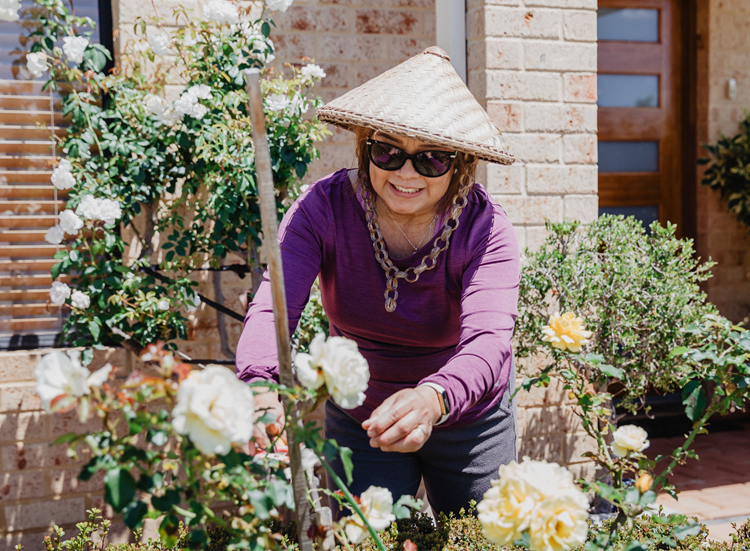
Gardening is great for healthy ageing. It's one of the most popular recreational activities in Australia. And there are good reasons for this. It has many physical and mental health benefits:
Gardening is great for healthy ageing. It's one of the most popular recreational activities in Australia. And there are good reasons for this. It has many physical and mental health benefits:
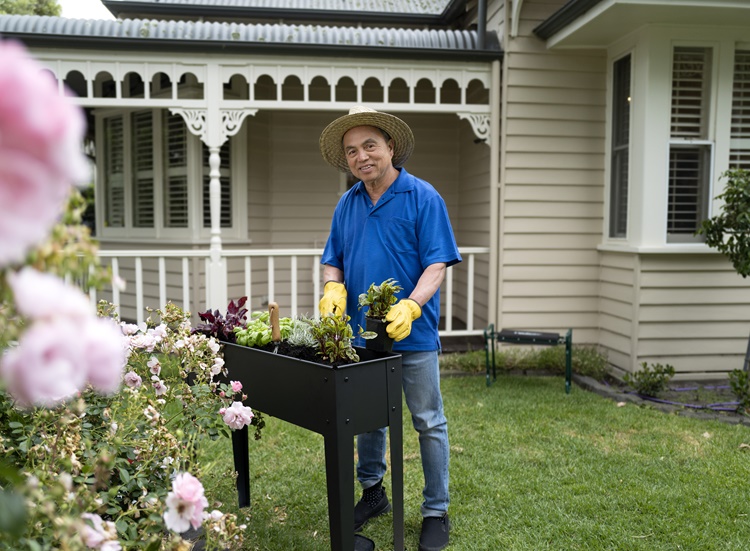
There are many tools and products to make gardening easier. Use a garden trolley or bucket to hold what you use most of the time. This means you’ll always have what you need close at hand to keep up with garden maintenance.
Safety and protective products are also important. E.g. gloves (including gloves with arm sleeves or long gauntlets), safety glasses, face masks, ear defenders, boot guards, and sunscreen.
Take care of yourself by doing a little bit of gardening more often, rather than a lot all at once. For example:
There are many tools and products to make gardening easier. Use a garden trolley or bucket to hold what you use most of the time. This means you’ll always have what you need close at hand to keep up with garden maintenance.
Safety and protective products are also important. E.g. gloves (including gloves with arm sleeves or long gauntlets), safety glasses, face masks, ear defenders, boot guards, and sunscreen.
Take care of yourself by doing a little bit of gardening more often, rather than a lot all at once. For example:
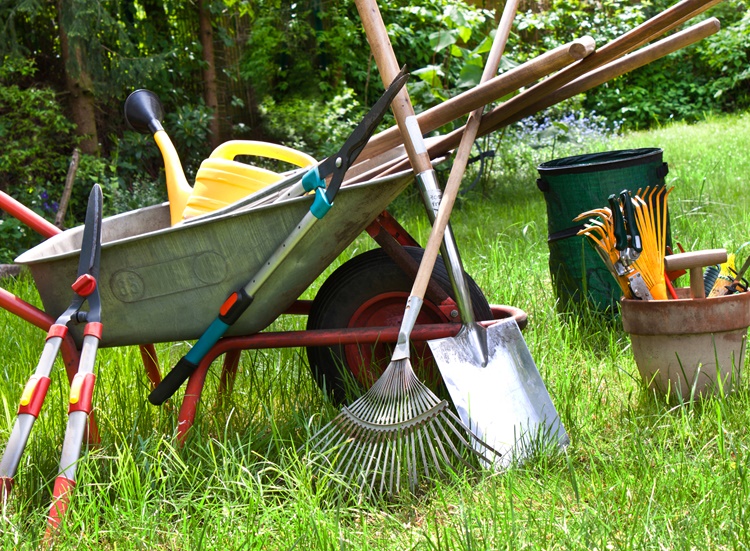
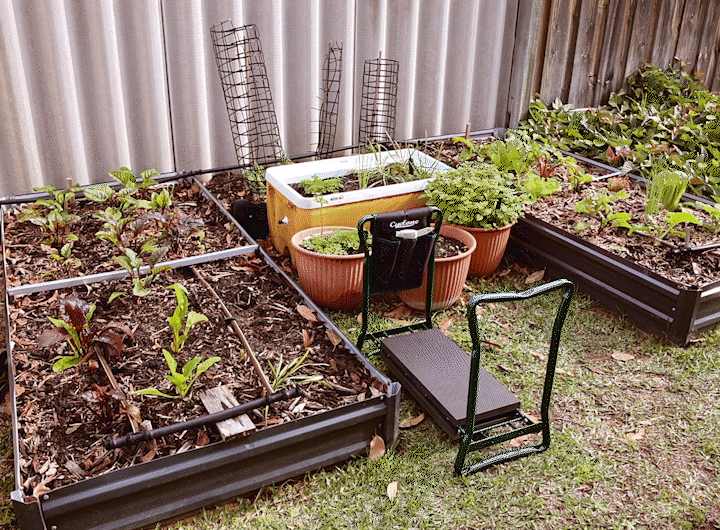
To reduce the impacts of bending and kneeling, consider:
Long-handled gardening tools reduce the need to bend or kneel. Mid-length gardening tools are useful for reaching into garden beds. If pushing a wheelbarrow or carrying is difficult, consider:
To reduce the impacts of bending and kneeling, consider:
Long-handled gardening tools reduce the need to bend or kneel. Mid-length gardening tools are useful for reaching into garden beds. If pushing a wheelbarrow or carrying is difficult, consider:
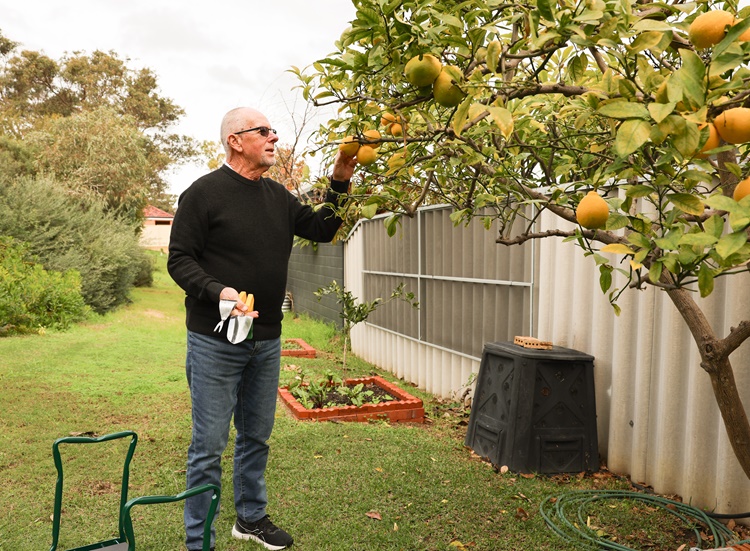
.tmb-large%20card.jpg?sfvrsn=9db7d968_0)
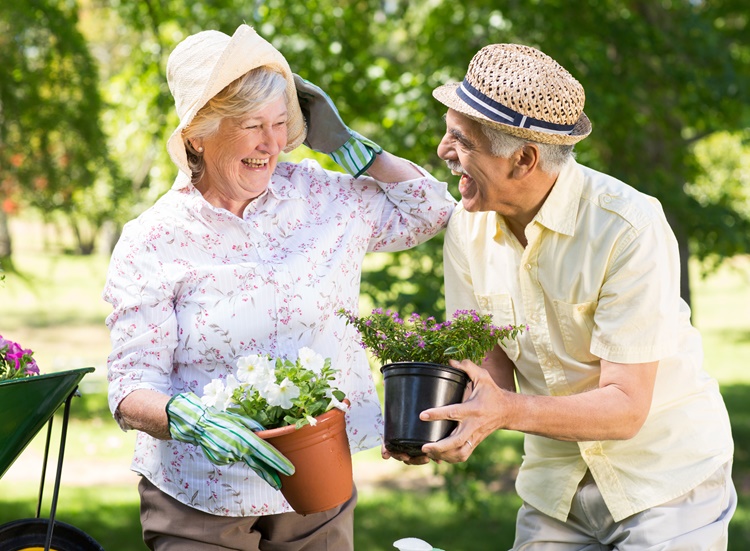
-(002).tmb-large%20card.jpg?sfvrsn=81c56fa6_0)
Gardening is all about change. If you plan to stay in your home, it’s worth making the changes to make enjoying your gardening easier.
Make a list of the jobs you need to do regularly, and the jobs you do less often. With some planning you can adapt your garden in stages. If you can, pay for professional help with a garden redesign for low maintenance, accessibility, and safety.
Mature gardens can sometimes be easier to maintain. You may only need to pay for help with jobs like lawn mowing, pruning vines, and hedges. Robotic lawnmowers are good for lawns that don’t have many obstacles. Some new brands can also apply fertiliser and do mulching.
Gardening is all about change. If you plan to stay in your home, it’s worth making the changes to make enjoying your gardening easier.
Make a list of the jobs you need to do regularly, and the jobs you do less often. With some planning you can adapt your garden in stages. If you can, pay for professional help with a garden redesign for low maintenance, accessibility, and safety.
Mature gardens can sometimes be easier to maintain. You may only need to pay for help with jobs like lawn mowing, pruning vines, and hedges. Robotic lawnmowers are good for lawns that don’t have many obstacles. Some new brands can also apply fertiliser and do mulching.
Read less...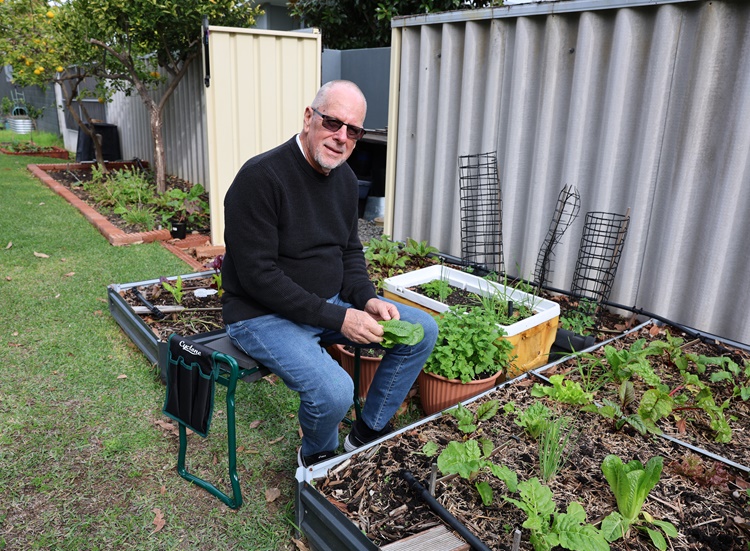
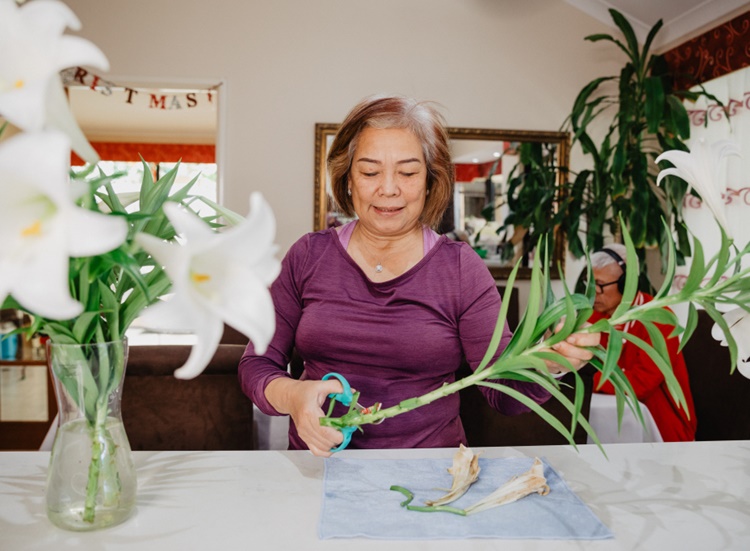
Houseplants have been shown to inspire creativity and foster a connection with nature. They give us relief in closed spaces by making the environment more pleasant.
Research has shown that keeping indoor pot plants has positive health benefits. These include:
Houseplants have been shown to inspire creativity and foster a connection with nature. They give us relief in closed spaces by making the environment more pleasant.
Research has shown that keeping indoor pot plants has positive health benefits. These include:
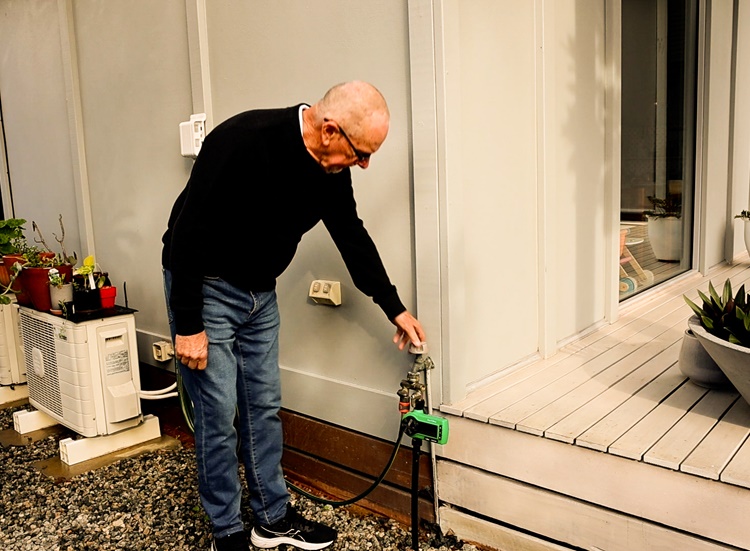
An occupational therapist (OT) can help you:
Find an OT in your local area with the search tool on the Occupational Therapy Australia website.
An occupational therapist (OT) can help you:
Find an OT in your local area with the search tool on the Occupational Therapy Australia website.
Read less...Get free information on community gardens, gardening clubs, open gardens, and horticultural shows. We can help you connect with gardening and other gardeners.
Stanborough, R.J. (2020, Sept 18). What are the benefits of indoor plants? Healthline. https://www.healthline.com/health/healthy-home-guide/benefits-of-indoor-plants
Howarth, M., Brettle, A., Hardman, M., & Maden, M. (2020). What is the evidence for the impact of gardens and gardening on health and well-being: A scoping review and evidence-based logic model to guide healthcare strategy decision-making on the use of gardening approaches as a social prescription. BMJ Open, 10(7). https://bmjopen.bmj.com/content/10/7/e036923
Take our easy OpenUp quiz to get personalised advice and see suggested products, services and support in your local area or online.
Let's go!